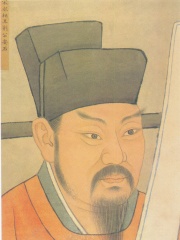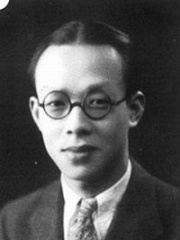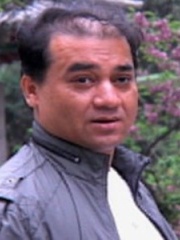


The Most Famous
ECONOMISTS from China
This page contains a list of the greatest Chinese Economists. The pantheon dataset contains 414 Economists, 3 of which were born in China. This makes China the birth place of the 19th most number of Economists behind Belgium, and Norway.
Top 3
The following people are considered by Pantheon to be the most legendary Chinese Economists of all time. This list of famous Chinese Economists is sorted by HPI (Historical Popularity Index), a metric that aggregates information on a biography's online popularity.

1. Wang Anshi (1021 - 1086)
With an HPI of 69.81, Wang Anshi is the most famous Chinese Economist. His biography has been translated into 40 different languages on wikipedia.
Wang Anshi ([wǎŋ ánʂɨ̌]; Chinese: 王安石; December 8, 1021 – May 21, 1086), courtesy name Jiefu (Chinese: 介甫), was a Chinese economist, philosopher, poet, and politician during the Song dynasty. He served as chancellor and attempted major and controversial socioeconomic reforms known as the New Policies. These reforms constituted the core concepts of the Song-dynasty Reformists, in contrast to their rivals, the Conservatives, led by the Chancellor Sima Guang. Wang Anshi's ideas are usually analyzed in terms of the influence the Rites of Zhou or Legalism had on him. His economic reforms included increased currency circulation, breaking up of private monopolies, and early forms of government regulation and social welfare. His military reforms expanded the use of local militias, and his government reforms expanded the education system and attempted to suppress nepotism in government. Although successful for a while, he eventually fell out of favor with the emperor.

2. Zhou Youguang (1906 - 2017)
With an HPI of 66.07, Zhou Youguang is the 2nd most famous Chinese Economist. His biography has been translated into 41 different languages.
Zhou Youguang (Chinese: 周有光; pinyin: Zhōu Yǒuguāng, born Zhou Yaoping; 13 January 1906 – 14 January 2017), also known as Chou Yu-kuang or Chou Yao-ping, was a Chinese economist, linguist, sinologist, and supercentenarian. He has been credited as the father of pinyin, the most popular romanization system for Chinese, which was adopted by the People's Republic of China (PRC) in 1958, the International Organization for Standardization (ISO) in 1982, and the United Nations in 1986.

3. Ilham Tohti (b. 1969)
With an HPI of 53.98, Ilham Tohti is the 3rd most famous Chinese Economist. His biography has been translated into 34 different languages.
Ilham Tohti (Uyghur: ئىلھام توختى; Chinese: 伊力哈木·土赫提; pinyin: Yīlìhāmù Tǔhètí; born October 25, 1969) is a Uyghur economist currently serving a life sentence in China, on separatism-related charges. He is a vocal advocate for the implementation of regional autonomy laws in China. In 2006 he founded Uyghur Online, a website that discusses Uyghur issues, and is known for his research on Uyghur-Han relations. Ilham was summoned from his Beijing home and detained shortly after the July 2009 Ürümqi riots for his criticism of the Chinese government's policies toward Uyghurs in Xinjiang. Ilham was released on August 23 after international pressure and condemnation. He was arrested again in January 2014 and imprisoned after a two-day trial. Ilham has received the PEN/Barbara Goldsmith Freedom to Write Award (2014), the Martin Ennals Award (2016), the Václav Havel Human Rights Prize (2019), and the Sakharov Prize (2019). Ilham is viewed as a moderate and believes that Xinjiang should be granted autonomy according to democratic principles.
People
Pantheon has 3 people classified as Chinese economists born between 1021 and 1969. Of these 3, 1 (33.33%) of them are still alive today. The most famous living Chinese economists include Ilham Tohti. The most famous deceased Chinese economists include Wang Anshi, and Zhou Youguang.

